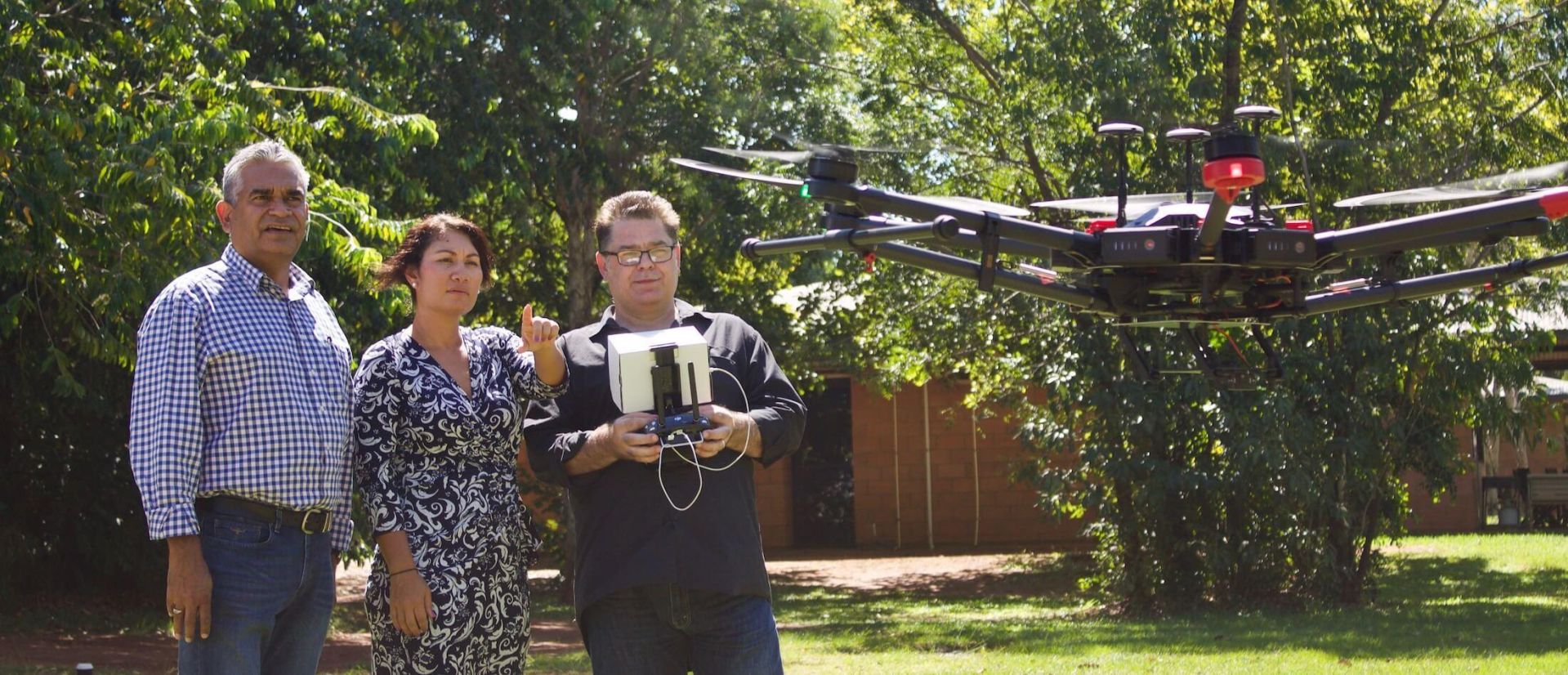

A Territory-first course currently in development at Batchelor Institute will offer certified drone pilot training to NT residents. It is the only home grown course here, developed with local industry and communities in mind, and will allow a wide range of people to learn the ins and outs of drone piloting. It is also the only course currently offered that will provide the training to fly machines from 7kg up to 25kg, which is often industry standard in mining, construction and film productions.
It is being developed by born and bred Territorian Michael Coyne, who has held a commercial pilot license for 21 years and is an industry leading expert in commercial RPAS (Drones).
“Batchelor Institute will be, if we can get it through prior to the end of the year, one of only a handful of training organizations around Australia running under the new CASA training syllabus,” said Mr Coyne.
“Drone operators are in high demand across a range of trades. For what you can do with this qualification, where it can take you, I think we will have a lot of interest from the community and businesses.”
“We are also the only company in the NT that is working on a fully inclusive, standalone drone piloting course. So when students walk out with their certificates, they are industry ready.”
Batchelor Institute Acting CEO Ms Naomi Anstess saw the state of the art drones take their maiden flights on campus this week.
“We are one of the Territory’s oldest education providers but we are always working towards providing training that reflects changes in industry and new technological developments,” said Ms Anstess.
“It is really exciting to see the drones flying on campus. This provides so many opportunities for our students and industry partners. We are looking forward to working to deliver these courses to a wide a range of people.”
“In the Northern Territory in particular, there are so many possible uses for drones. From photography, surveying, construction, surveillance – the list goes on. When students undertake this course they can use their skills in so many different vocations. It will really help build industry advancement in the NT and give graduates an edge in employment opportunities.”
Drones have been utilised in conservation programs, particularly with Indigenous rangers, and allow operators to survey very large areas. It is also transforming industries such as mining, construction and surveying.
Batchelor Institute will offer two courses. One will be a short course and the other a fully accredited course in Aviation (RPAS).
The short course will cover the basics of operating a remotely piloted aircraft (RPA) under two kilograms, which is the legal limit for flying a RPA without requiring an operator’s certificate or remote pilot licence, and is designed for anyone interested in operating a drone recreationally or looking to get some initial training.
The fully accredited course (RPAS) will provide students with an opportunity to gain a full commercial RPAS licences from the Civil Aviation Safety Authority (CASA) and employment ready skills to operate a Multi Rotor RPA up to 25kg. This will provide students with employment opportunities across a range of career paths, as well as offer businesses the ability to upskill their workforce in this innovative commercial technology.
The international market for piloted drones is forecast to more than double by 2022.
These new courses will be using the latest drone models including DJI Phantom 4 Pro (Sub 2kg), DJI Inspire 2 Pro (2kg to 7kg group) and the DJI Matrice 600 Pro (7kg to 25kg group).
Words and image: Chelsea Heaney
